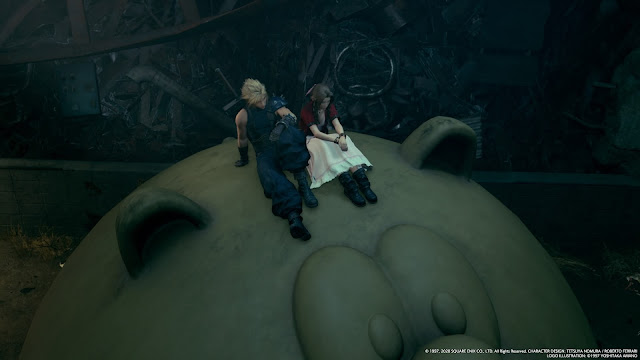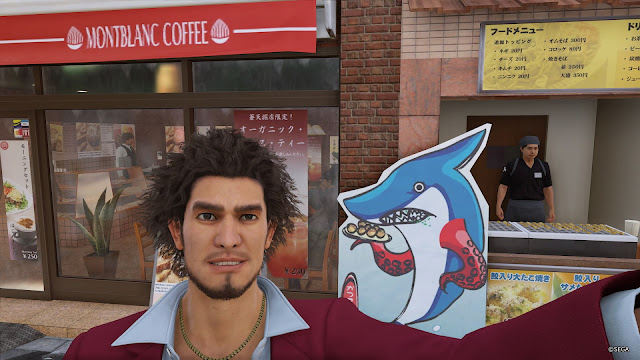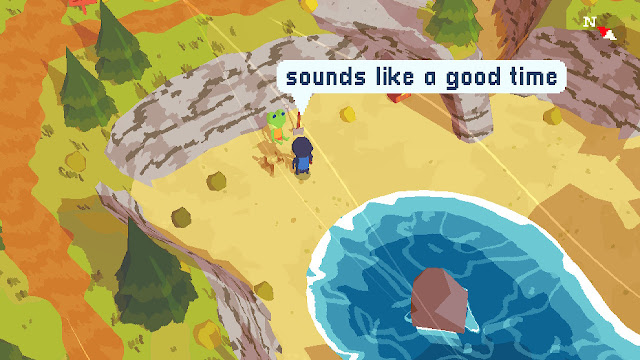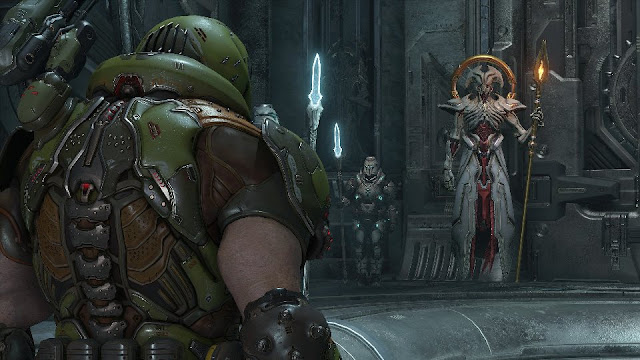2020 was a great year for games big and small! In some ways, this was the year of the remakes of all sorts: A visual overhaul of Demon's Souls, a story-faithful remake of Resident Evil 3 with modern gameplay, and a radical, excellent reinvisioning of Final Fantasy 7 among others. It was also a year of wonderful indie games, including the latest from the always excellent Supergiant Games. We also saw the release of two new consoles from Sony and Microsoft; I was happy to pick up a PS5 to replace my PS4, which had been struggling to run for the last year and a half. It's great seeing my existing games run smoother and with way shorter load times, and the new controller feels wonderful in the tech demo pack-in title Astro's Playroom.
In my own gaming world, I released a demo version of my upcoming RPG Walthros: Renewal, available on Steam and Itch.io. Please take a look and let me know what you think! The final version is planned for an early 2022 release.
Here's a look at everything I played this year, arranged in tiers in alphabetical order.
Top Tier - My five favorite games of the year:

13 Sentinels (PS4) - One of my biggest surprises of the year, 13 Sentinels is a story-driven title that asks, "What if every kind of sci-fi premise happened simultaneously?" And, shockingly, it works! Divided between light exploration scenes focused on dialogue and a strategic overhead war game, 13 Sentinels follows a large ensemble cast whose stories are told across short chapters that unfold in a nonlinear fashion. It's a complex story told with impressive clarity, and as crazy as the constant plot twists can seem, they all serve the growth of our heroes and villains. It's a coming of age story, an exploration of gender norms, a look at the trauma of war, and a study of how we correct the sins of our ancestors.

Final Fantasy 7 Remake (PS4) - One of the medium's most ambitious remakes, Final Fantasy 7 Remake abandons the original 1997 version's turn-based combat in favor of a phenomenally fun action system. It also makes dramatic changes to the original story, fleshing out side characters and expanding the early sections of the original game into a full-length title. I was worried that a remake would lose the original's oddball sense of humor, minigames, and surprises, but this new version hit all the right notes. It keeps the best parts of the original FF7's tone while making some really ambitious changes to the story. While the entire story of FF7 isn't told here (it will be continued in an upcoming sequel,) this remake nonetheless feels very complete and ends on a satisfying note.

Hades (Nintendo Switch) - I've loved everything Supergiant Games has released, but I'm not a fan of roguelikes. I wasn't very excited when I first heard about Hades, but they pulled off the impossible and made one that I not only enjoyed, but actually consider one of the year's best games. What makes Hades different is the way fighting, dying, and trying again complements the plot so well. You play as Zagreus, son of the underworld god Hades, as he tries repeatedly to escape from his father's domain. Each attempt adds more to the story and its characters, unlocking new options, conversations, and abilities regularly. A successful run is fairly short (by the end I was usually completing a run in around 30 minutes of game time), so very little time is wasted if you have a bad run. Even then, the game feels so fair, and gives you so many powerful options, that it never feels like you failed because of bad luck. While most roguelike games are out to get you, Hades instead welcomes you into its world with a constant flow of "Look at THIS cool thing!" moments.

Last of Us 2 (PS4) - A phenomenally good sequel that improves on the first game in nearly all ways, Last of Us 2 presents a story of revenge and acceptance from two different perspectives, both equally compelling. Both Ellie and Abby are strong leads dealing with trauma in very different ways, and it would have been very easy to write a story like this that boils down to "All violence is wrong." Instead, the game approaches the topic of violence with more nuance, showing it as a consuming force when used selfishly, but also something that can be used to fight for and protect the oppressed. While this is a gruesome story, it's not all violence; the game's best moments are quiet, peaceful scenes where we get to know our characters in "normal" situations. On top of that, it features some of the best stealth-driven gameplay I've experienced and an incredible range of accessibility options.

Yakuza: Like A Dragon (PS4) - This might be the only Japanese RPG I've played as an adult where almost the entire cast is my age or older! A tribute to the Dragon Quest series, the latest Yakuza title moves away from the series' traditional brawler gameplay and instead uses a turn-based system. It takes a little while to get going, but once you've unlocked a decent amount of abilities and characters, the battles become a ton of fun. This is also a fresh start for the series and a perfect starting place for new players; the series' longtime hero Kazuma Kiryu's story concluded in the wonderful Yakuza 6: The Song of Life, and now we follow newcomer Ichiban Kasuga, a man who hits rock bottom after being left for dead.
One of the most human stories in the series, Like a Dragon focuses heavily on class issues, showing two men born in similar circumstances moving in opposite directions on the social ladder. Kasuga fights for the dignity of sex workers, the homeless, and other marginalized groups, opposing corrupt cops and politicians. In addition to the excellent main story, there's also a ton of minigames, including a very full-featured Mario Kart clone.
Excellent games worth your time:

A Short Hike (Nintendo Switch) - As the name implies, this is a short, delightful little game. A peaceful adventure where players explore an island full of animal buddies, A Short Hike's obstacles are conflict with the environment and conflict with self-doubts and worry. The writing is funny, the world is cute, and it's just a warm, relaxing experience.
Astro's Playroom (PS5) - A short platformer included with every PS5, Astro's Playroom is a tribute to Playstation history designed to show off the system's new controller, fast loading, and shiny graphics. It's a cute, fun follow up to 2018's Astro Bot Rescue Mission, one of the best VR titles on the PS4 console, and features excellent controls and level design. It's not very long, but it's a delight from start to finish and I'd love to see it expanded into a full-length title.

Bugsnax (PS5) - A delightful take on the monster catching genre from the creators of Octodad, Bugsnax is a puzzle game focused on tricks, traps, and photography. Snaktooth island is full of hilarious bug-food hybrids and a society of grumpy Muppets looking for a better life. Like Octodad, Bugsnax features a silly exterior while exploring poignant themes. While Octodad looked at issues of identity and disability, Bugsnax looks at addiction, isolation, and finding a new path in life. It's told in a way that's accessible to kids as well, even if the final act might be a little too spooky for the younger ones. My daughter enjoyed watching me play and now insists on "Playing Bugsnax in real life," which means leaving ketchup packets around the house and setting up laundry baskets to catch hamburgers.

Clubhouse Games: 51 Worldwide Classics (Nintendo Switch) - A collection of board and card games both ancient and modern, featuring nice, easy-to-learn tutorials and in many cases online play. Each game features a variety of difficulty levels and playing repeatedly unlocks trivia about the game's history. I'm mostly here for Riichi Mahjong, and the version included is great!
Demon's Souls (PS5) - A gorgeous visual remake of 2009's phenomenal Demon's Souls, this title takes the opposite approach of the FF7 Remake and leaves the original gameplay largely untouched outside of some minor improvements. It felt great to once again enter the world of Boletaria with a lively online player base, one that will continue to grow as PS5s become more readily available. There are a couple of bad choices when it comes to updated character designs, but for the most part this is a faithful revival of the classic that launched the Souls series.

Kentucky Route Zero (Nintendo Switch) - A long-haul episodic adventure game whose first episode hit PCs back in 2013, the final episode of Kentucky Route Zero was released along with a complete edition of the game on Switch in 2020. A surreal odyssey that wavers between point-and-click adventure gameplay and interactive art piece (I absolutely love that some scenes have you call into a number on a real life phone to hear messages,) there's nothing quite like this one. I didn't love the final episode as much as I did the rest of the game, but that's fine, this is absolutely an experience that's more about the journey than the destination.

Resident Evil 3 (PS4) - A follow up to 2019's remake of Resident Evil 2, Capcom's latest REmake takes on one of my least favorite titles in the series and turns it into a wildly fun, if short, action-packed adventure. The puzzles aren't as interesting as RE2's and the maps aren't as inventive, but RE3 makes up for that by focusing on nutty action set pieces and refined combat that feels smoother than ever thanks to a helpful dodge button. It doesn't have the replayability of RE2, but aside from that, this remake is a great time.
Spider-Man: Miles Morales (PS5) -
Short and sweet, I'd be happy with this size game in more open world adventures! It took me about ten hours to run through the game and while that's far smaller than the previous Spider-Man title, I'm good with it. The previous game had a much more epic scale for sure, but I liked Miles here a lot more than I liked Peter there. It's nice to see a hero whose focus is on being a good neighbor rather than Peter Parker's bizarre love of cops that ran through the last game. The most unbelievable thing here isn't a kid getting magical spider-powers but rather that a billionaire would ever be held accountable for their crimes.
Super Mario Bros 35 (Nintendo Switch) - Nintendo's follow up to the wonderful Tetris 99 uses a similar concept: What if 35 people played Super Mario Bros at the same time and just kept dumping trash all over each other? Released for the 35th anniversary of the original Super Mario Bros on NES, this frantic multiplayer platformer can get wonderfully chaotic, with players leaving dozens of Bowsers all over the place. You'll see a few stages repeat too many times, but otherwise this experience is golden.

The Pathless (PS5) - Like Spider-Man: Mile Morales, The Pathless is a short-form open world adventure focused on fluid, fantastic movement. Where Miles is full of action, The Pathless takes a different approach, giving players a world filled with puzzles big and small, leading up to puzzle-based boss fights. It feels influenced by Zelda: Breath of the Wild and Shadow of the Colossus in all the best ways and is highly recommended to fans of either.
When the Past was Around (Nintendo Switch) - Great puzzles and a well-built experience about loss and grief. Lovely art and music! Some of the later puzzles definitely need a pen and paper and that's cool, it's short enough that nothing can become frustrating. I played through a lot of the puzzles with my wife and that felt thematically perfect. Told without words, this is a story best experienced in one sitting.
Games with standout elements:

Bloodstained: Curse of the Moon 2 (Nintendo Switch) - An iteration on Inti Creates' 2018 nostalgia platformer that's a lot of fun to play but doesn't offer much new. You'll use new characters and weapons, but it feels about as distinct from the previous games as the later Mega Man games do. I'm honestly fine with that here; both games are good times, and it can be nice to get more of a good thing. Solid level design and some big, spooky bosses.

Doom Eternal (PS4) - Doom Eternal, on the other hand, tries to do things a little too differently from its predecessor, the 2016 masterpiece that revived this series. While Doom 2016 offers minimal story, Doom Eternal buries you under mountains of world-building lore that don't amount to anything interesting. They're largely optional, but it's still bizarre to see. There's a much heavier emphasis on platforming this time around, which I personally enjoyed but can see growing tiresome for other players. It feels like there's a game missing in between this one and 2016's; in spite of being so story-driven, you're launched into a plot that doesn't really make any sense given the conclusion of the last game. Still, it's exceptionally fun to fight hordes of gross monsters, even if it doesn't live up to 2016's high standards.

Ghost of Tsushima (PS4) - The absolute opposite of Spider-Man: Miles Morales, Ghost is an enormous open world samurai adventure that could have been one of my favorites of the year if it had better pacing. Side stories often involve nine repetitive quests each, almost all overstaying their welcome by the time you're finally done. The story is built in three acts, all of which have the same basic structure. It's not as egregious as the repetition of Shenmue III, but it's still annoying when a tighter experience would benefit this story greatly. It's a visual masterpiece and the combat is a great Sekiro-lite, but it's just a little too much.

Mortal Shell (PS4) - A Dark Souls inspired title that could be great in a more refined sequel. Like most Souls-likes, the map design isn't particularly good, leading to players feeling lost in a frustrating way rather than an exciting one. Still, this game's got style and it's a nice attempt at building a smaller, more compact Souls adventure (it took me around 10 hours total.) It gets a lot better once you figure your way out of the opening area.

Sakura Wars (PS4) - Relationship drama mixed with giant robot fighting: At its core, this revival of Sega's long-running franchise isn't too different from the structure of 13 Sentinels, but Sentinels just completely blows it away when it comes to both writing and gameplay. Sakura is cute and silly, with its comedy working far more effectively than its drama, so if you want your smashy robot dramas a little more playful and a little less apocalyptic, this is an alternative to Sentinels. The combat's a decent enough button masher, but could have used a lot more depth.
All the rest:

Fall Guys: Ultimate Knockout (PS4) - An online multiplayer Takeshi's Castle where dozens of players rush toward a goal while avoiding rubbery obstacles and clownish pratfalls. I had a lot of fun with it for a couple days, but I lost interest after that. There's been a decent flow of free, new content released since launch for players who are still into it, but this wasn't really a game for me.
Scourge Bringer (Nintendo Switch) - When I said roguelikes aren't usually for me? This is the kind of game I'm talking about. It's punishing in a tiresome way, hard for me to follow, and makes me feel like I'm wasting my time on each loss. It's a smooth game that will absolutely appeal to some players, but I got to the end and never felt any real connection. Regardless of difficulty: Every single encounter is exactly twice as long as it needs to be.

Streets of Rage 4 (PS4) - Another revival of an old-school classic, released 26 years after 1994's Streets of Rage 3.
This is a good arcade beat em up with cool music, great art, and a nice
variety of playable characters. The problem is it's a genre I only
really enjoy when playing with other people in the room, online match
ups just aren't the same. 2020 was probably the worst time for me to
play a game like this, but I still had a good time on my couple of
plays.

Space Invaders Forever (Nintendo Switch) - It's absolutely weird that a title sold as a Space Invaders collection includes only three games; one that's brand new, a 2017 phone game, and a redo of the excellent Space Invaders Extreme from 2008. Extreme is as good as ever, but it's the only decent game in this package. The mobile title Arkanoid vs. Space Invaders is a bare-bones port that's only playable on the touchscreen and features no controller support and has that obnoxious mobile game design where you spend just as much time selecting stages as you do playing them. The new title on display, Space Invaders Gigamax 4 SE, is a four player version of Space Invaders that doesn't offer much excitement compared to something like Pac-Man Battle Royale.
I'm one of those people who actually does still enjoy the original Space Invaders, but this collection doesn't work for me when it contains only one worthwhile title out of the many oddball sequels and spinoffs they could have packed in. Still, if you've never played Extreme, it's worth it just for that if you can pick up a cheap copy of the collection.




















































